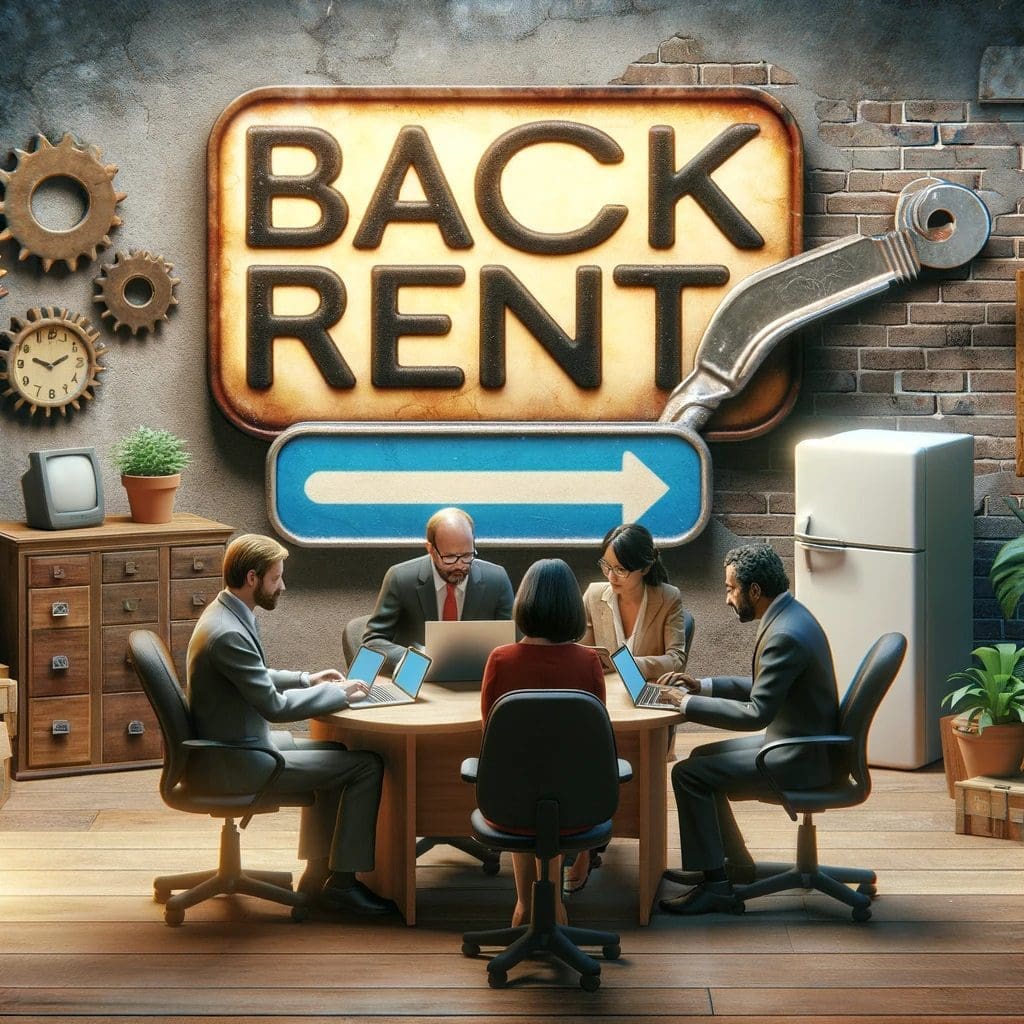How Can Landlords Recover Unpaid Rent Quickly?
The Legalities and Strategies for Recovering Back Rent in Landlord-Tenant Disputes
In the realm of landlord-tenant law, the issue of back rent stands out as a significant challenge many landlords face. Back rent refers to the unpaid rent owed by a tenant as per the terms of the rental agreement. This situation not only affects the landlord’s financial standing but can also lead to complex legal disputes. Understanding the legalities and strategies for recovering back rent is crucial for landlords to navigate this challenge effectively.
Understanding Back Rent in the Legal Context
Back rent accumulates when tenants fail to pay their rent on time. The reasons can vary, ranging from financial difficulties to neglect or misunderstanding of lease terms. In the legal context, landlords have certain rights and remedies to recover back rent, but they must also comply with state and federal laws, including the Fair Housing Act and state-specific landlord-tenant statutes.
The Process of Claiming Back Rent
To legally claim back rent, landlords must follow a structured process. This typically begins with a formal notice to the tenant, highlighting the overdue rent and the need for payment. Depending on the state laws, this notice might be a prerequisite before taking any further legal action.
The notice should clearly state the amount of back rent owed, the due date, and any applicable late fees. It should also inform the tenant of the consequences of non-payment, including the possibility of eviction.
Legal Avenues for Landlords
When informal negotiations fail, landlords can resort to the legal system to recover back rent. Small claims courts are commonly used for such disputes, offering a quicker and more cost-effective resolution than higher courts. The process involves filing a lawsuit against the tenant, presenting evidence of the owed rent, and following through with the court proceedings.
In some cases, landlords may also be able to use the tenant’s security deposit to cover the back rent. However, this should be done in accordance with state laws and the terms of the lease agreement.
Tenant Rights and Defenses
Tenants, on the other hand, have specific rights and can present defenses against claims for back rent. These might include arguments about the property’s habitability, improper eviction notices, or even counterclaims against the landlord for breach of the lease agreement.
For example, if a tenant can prove that the landlord failed to maintain the property in a habitable condition, they may argue that they had a valid reason for withholding rent. Similarly, if the landlord did not follow the proper eviction procedures, the tenant may have a defense against eviction.
Role of Mediation in Resolving Disputes
In many cases, mediation serves as an effective alternative to litigation. This process involves a neutral third party who helps both the landlord and tenant discuss their issues and ideally reach a mutually agreeable solution. Mediation can be less adversarial and more cost-effective than court proceedings.
During mediation, both parties have the opportunity to present their arguments and concerns. The mediator facilitates communication and encourages negotiation. If an agreement is reached, it is typically documented in writing and signed by both parties.
Importance of Clear Lease Agreements
One of the key strategies to prevent disputes over back rent is having a clear, comprehensive lease agreement. This contract should outline all terms related to rent payment, including due dates, late fees, and the process for handling unpaid rent.
Landlords should ensure that tenants fully understand the lease terms before signing. It’s also essential to provide tenants with a copy of the lease and keep records of all communications and transactions related to rent payments.
Maintaining Property and Tenant Relations
Good property maintenance and positive tenant relations can also play a significant role in preventing issues related to back rent. Regular communication and prompt attention to maintenance issues can foster a positive landlord-tenant relationship, reducing the likelihood of rent disputes.
Landlords should conduct regular property inspections to identify maintenance needs and address them promptly. Open and respectful communication with tenants can help resolve issues before they escalate into legal disputes.
Conclusion
Recovering back rent is a multi-faceted process that requires landlords to understand their legal rights and responsibilities, as well as the importance of clear communication and lease agreements. By navigating this process effectively, landlords can protect their financial interests while maintaining fair and legal practices in their rental business.
- Nolo Guide to Recovering Back Rent and Statutory Protections
- U.S. Department of Housing and Urban Development Tenant-Landlord Rights
- Legal Information Institute Writ of Execution Procedures
- American Bar Association Landlord-Tenant Dispute Resolution Resources
- FindLaw Small Claims Court Process for Landlords















